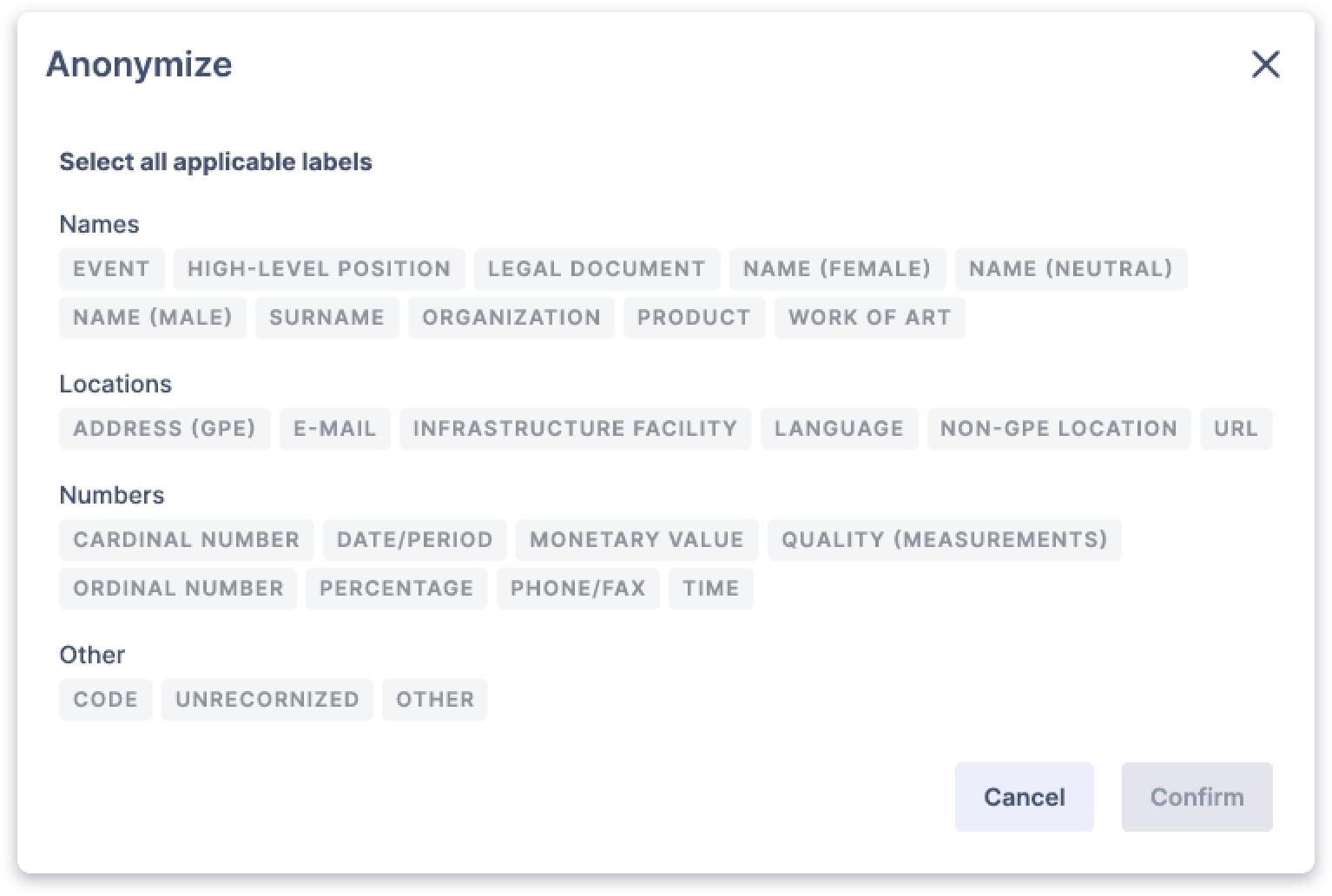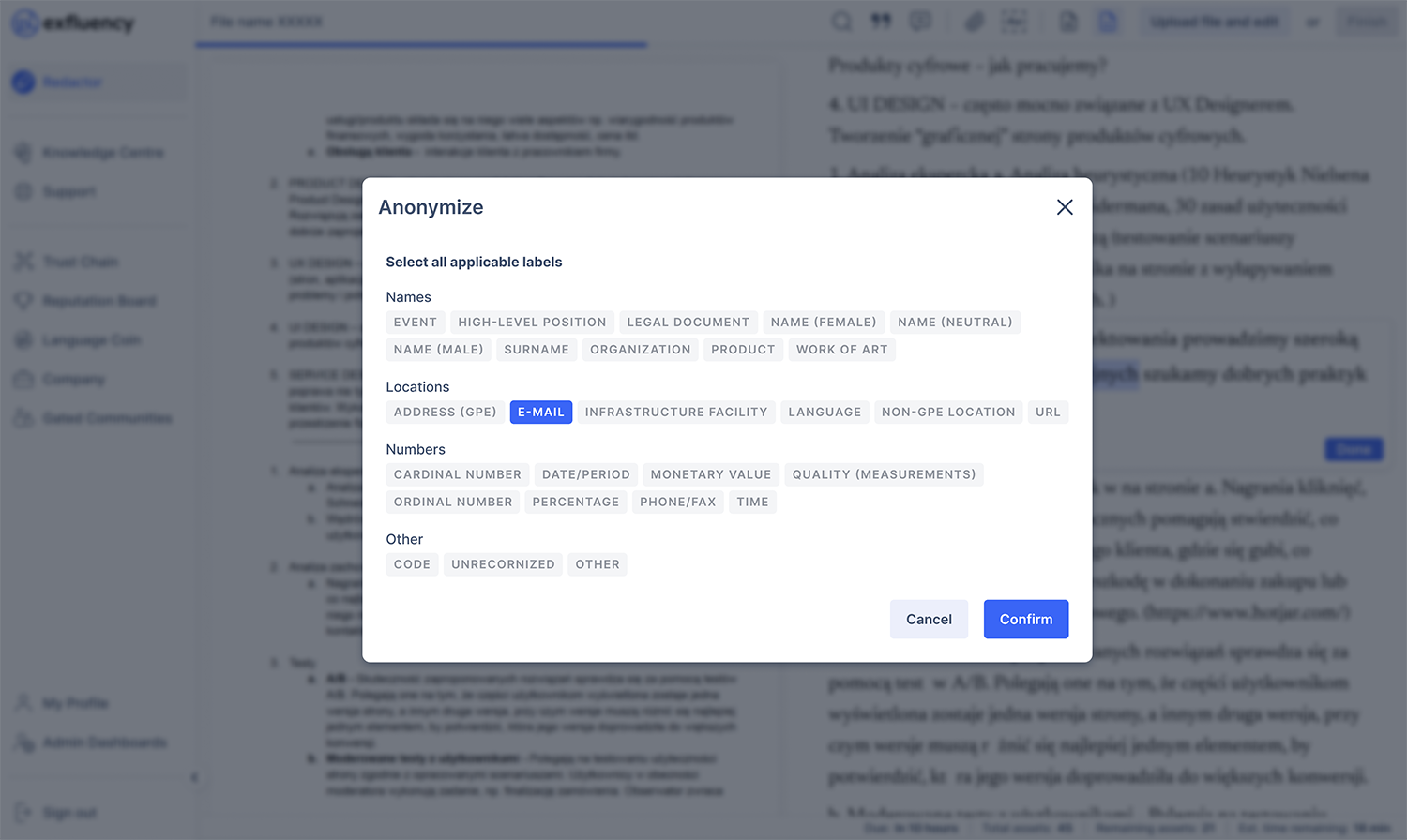What is data anonymization?
Data anonymization is a semi-automated procedure that removes clearly identifiable information from data sets rendering them fully secure.
- It replaces personal and confidential information with placeholders that can never be re-associated with the original source.
- Our approach is a unique hybridisation of automated processes augmented with manual fine-tuning that is even more thorough and secure than the standard method.
- The better anonymized content is, the more it can be reused, and the greater value it can offer in the creation of new, recyclable content.


How we work with anonymization
Data protection regulations set strict rules about how we manage and store your data.
- By including an advanced data anonymization stage in our workflow, we guarantee your business's confidential data respects privacy by design principles.
- Sensitive content is automatically replaced with placeholders that keep the context but are entirely non-traceable.
- Our community of skilled anonymizers review the AI-generated output before data leaves the anonymization stage for further processing.
How does data anonymization work?
The technology behind our data anonymization solution:
- Because of our fundamental belief in ‘data security first’, the anonymization process takes place before the data is sent to NMT engines. This way, confidential data never leaves the Exfluency ecosystem.
- Our anonymization engines have gone through a generic machine learning (ML) process to ensure personal identifiers can automatically be found and replaced by a token.
- Our ML algorithms make sure that the engines become better at anonymizing sensitive data over the time.
- Additionally, we can train custom anonymization engines that are based on your own data and take your confidential information into account when anonymizing your documents.